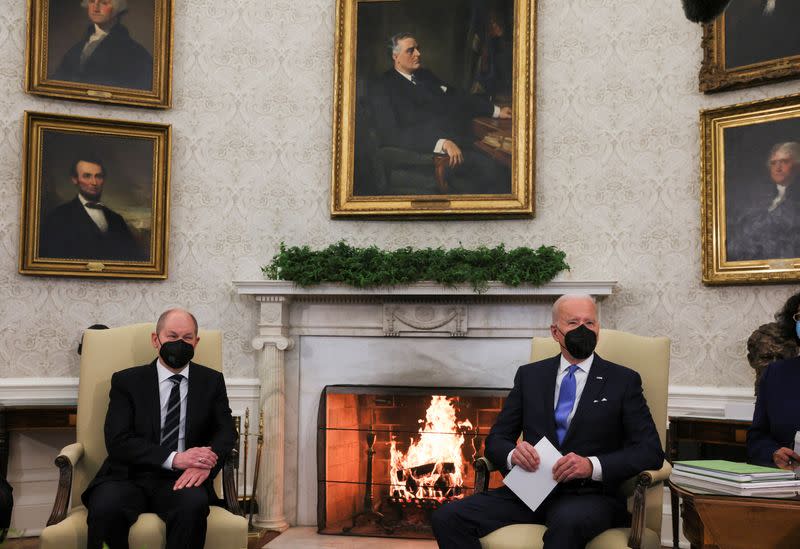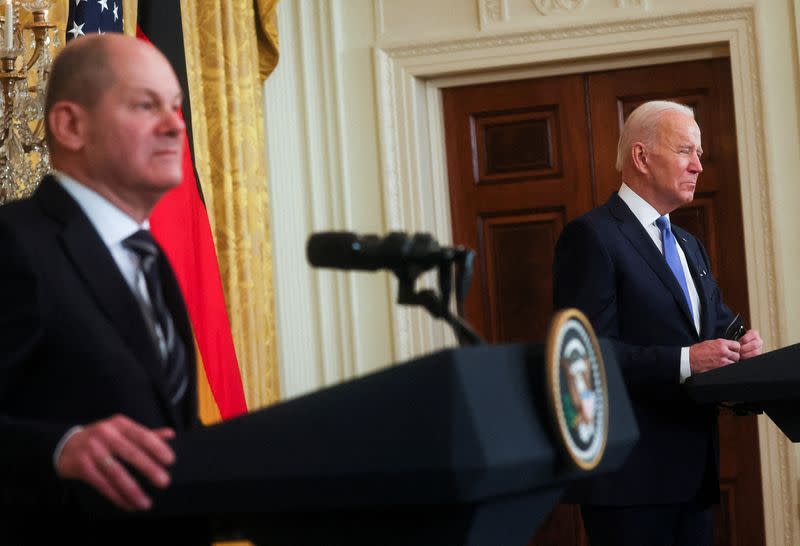Biden, Scholz highlight NATO reinforcements if Russia invades Ukraine
- Oops!Something went wrong.Please try again later.
- Oops!Something went wrong.Please try again later.
- Oops!Something went wrong.Please try again later.
WASHINGTON/BERLIN (Reuters) -U.S. President Joe Biden and German Chancellor Olaf Scholz discussed Russia's military build-up near Ukraine in a phone call Wednesday and underscored the importance of reinforcing NATO's eastern flank if Moscow invades, the White House said.
A German government spokesperson said the two leaders agreed the situation in Ukraine must be assessed as "extremely serious" as there is still a risk of further Russian military aggression.
World powers are engaged in one of the deepest crises in East-West relations for decades, jostling over post-Cold War influence and energy supplies as Russia wants to stop Ukraine ever joining the NATO military alliance. [L1N2UR0IG]
The White House said in a statement that Biden and Scholz discussed their respective recent conversations with Russian President Vladimir Putin and Ukrainian President Volodymyr Zelenskiy.
Biden and Scholz "reaffirmed their commitment to Ukraine’s sovereignty and territorial integrity and underscored the importance of continued transatlantic coordination on diplomacy and deterrence measures and the reinforcement of NATO’s eastern flank if Russia further invades Ukraine," the White House said.
Steffen Hebestreit, the German government spokesman, said "maximum vigilance" is needed as there has been no significant withdrawal of Russian troops so far. The leaders welcomed Putin's statement that diplomatic efforts should continue, he added.
Scholz and Biden agreed it was important to move towards the implementation of the Minsk peace agreements negotiated by Russia, Ukraine, France and Germany in 2015 and to make progress in the Normandy format -- a grouping of envoys from those countries that has met periodically since the 2014 Russian annexation of Crimea -- with the support of Germany and France, Hebestreit said.
(Reporting by Rami Ayyub in Washington and Zuzanna Szymanska in Berlin; editing by Jonathan Oatis and Richard Pullin)


